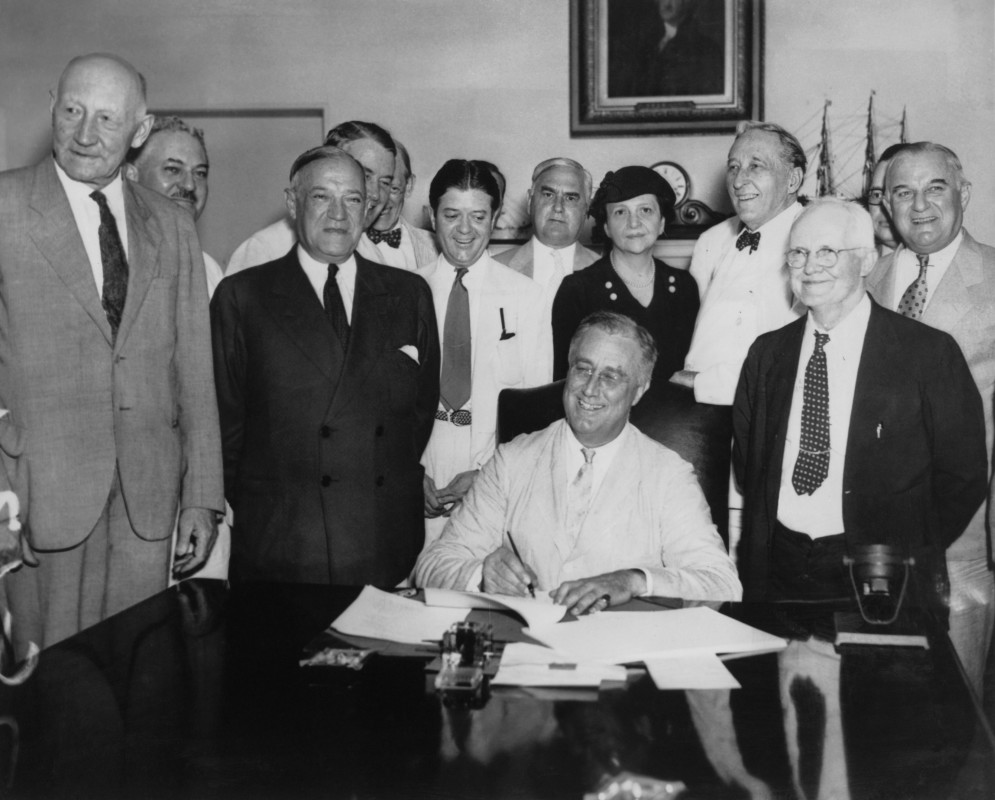
BlackRock (BLK) CEO Larry Fink has some strict criticism for the generation born in the 1950s, often known as baby boomers, or boomers for short. The executive, who is a boomer himself, claimed in a new letter to BlackRock investors that the older generation hasn’t been doing enough to help the “economically anxious” younger generations and should retire at an age later than 65.
“It’s no wonder younger generations, Millennials and Gen Z, are so economically anxious,” said Fink in the letter. “They believe my generation — the baby boomers — have focused on their own financial well-being to the detriment of who comes next. And in the case of retirement, they’re right.”
Related: This economist has some distressing news about your mortgage
Fink also said in the letter that younger generations “have lost trust in older generations,” and that it is the responsibility for boomers to gain it back by making investments.
“Young people have lost trust in older generations,” he said. “The burden is on us to get it back. And maybe investing for their long-term goals, including retirement, isn’t such a bad place to begin.”
Fink also states in the letter that he believes that older generations should retire at an age over 65 due to changing demographics in the country. He claims that people are living longer than they did in the early 20th century, and that the Social Security program worked during that era because “more than half the people who worked and paid into the system never lived to retire and be paid from the system.”
“It’s not just that more people are retiring in America; it’s also that their retirements are increasing in length,” said Fink. “Today, if you’re married and both you and your spouse are over the age of 65, there’s a 50/50 chance at least one of you will be receiving a Social Security check until you’re 90. All this is putting the U.S. retirement system under immense strain. The Social Security Administration itself says that by 2034, it won’t be able to pay people their full benefits.”

The Social Security Act was signed into law in 1935, and Social Security programs rose in popularity in the 1960s. The idea behind Social Security is that a portion of money is taken from your income by the government, and it is given back to you in monthly checks after you retire.
"No one should have to work longer than they want to," said Fink in the letter. "But I do think it’s a bit crazy that our anchor idea for the right retirement age — 65 years old — originates from the time of the Ottoman Empire."
There have been many fingers pointed at boomers lately amid Gen Z’s struggles navigating the current tight economic climate. A recent survey from research firm Redfin revealed that young homeowners are struggling to find affordable homes in the U.S. because boomers have chosen to remain in houses they purchased decades ago.
The survey found that about 40% of boomers have lived in their home for at least 20 years. It also found that about 80% of boomers and 72% of Gen Xers own their home, compared to 55% of Millennials and 26% of Gen Zers.
“When baby boomers hold onto their homes, which are often larger family sized homes, they create a shortage of homes for younger families who are trying to buy their first home or move up to a larger house,” said Chen Zhao, the head of economic research at Redfin, while speaking to Bloomberg about the survey findings. “Without that, younger families are facing both high rates and high prices, worsening an affordability challenge that already plagues the market.”
Related: Veteran fund manager picks favorite stocks for 2024







